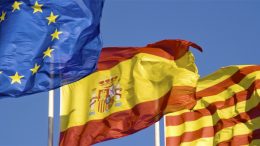Migration: An Avoidable Tragedy For Spain And The EU
Spain may not be the most common point of entry for most migrants and refugees to Europe – last year it received only two percent of arrivals – but it does seem to be facing increasing challenges in this area. Cities like Málaga and Tarifa, on the south coast, are currently struggling to manage arrivals, which so far this year have doubled those of the equivalent period in 2016.










